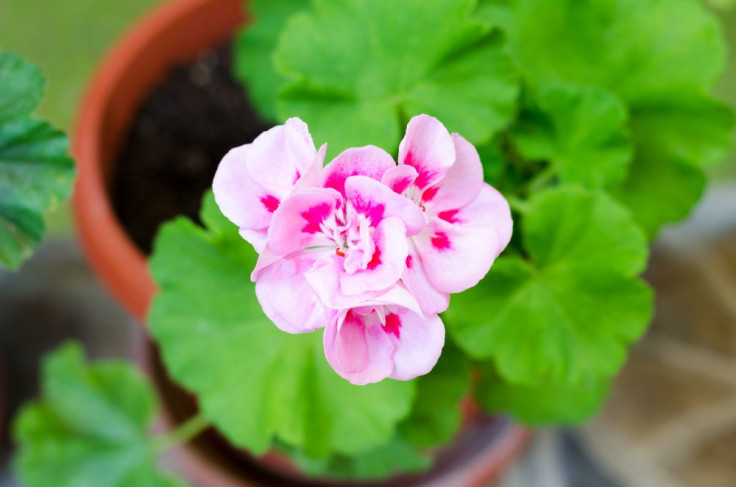HIV Treatment Via Geranium Extracts: Natural Way To Fight Infection, Inhibit Replication

German researchers have found that geranium extracts can inhibit HIV type 1 by preventing the virus from invading human cells, raising the possibility that the next big thing in AIDS prevention may be found in your own backyard.
The new study, which is published in the journal PLOS ONE, shows that the extracts from the geranium plant Pelargonium may represent a previously overlooked method of fighting HIV-1 with natural substances. “Global HIV-1 treatment would benefit greatly from safe herbal medicines with scientifically validated novel anti-HIV-1 activities,” lead author Dr. Ruth Brack-Werner and her colleagues at the German Research Center for Environmental Health in Munich wrote in the study.
“The root extract from the medicinal plant Pelargonium sidoides (PS) is licensed in Germany as the herbal medicine EPs®7630, with numerous clinical trials supporting its safety in humans,” they added. “Here we provide evidence from multiple cell culture experiments that PS extract displays potent anti-HIV-1 activity.”
HIV-1, one of the two known viral strains that cause AIDS, accounts for virtually all infections in the U.S. The other strain, HIV-2, is not widely seen outside Africa. Together, the two subtypes infect nearly three million people every year.
What the new study shows is that the PS extract can attack HIV particles and inhibit so-called viral replication — the process whereby the virus hijacks healthy cells. In an experiment with cell cultures, the researchers were able to trace the protective effect back to polyphenols, a class of naturally occurring compounds. According to Brack-Werner, the extracts thus set the stage for the world’s first HIV therapy based on phytomedicine, or plant-based medicine. “PS extracts attack HIV-1 with a mode-of-action that is different from all anti-HIV-1 drugs in clinical use,” she explained in a press release. “Therefore a PS-based phytomedicine may be a valuable supplement for established anti-HIV therapies.”
A Natural HIV Treatment?
Today, HIV affects 33.4 million people globally. Since the first case was recorded in 1981, more than 25 million people have died from AIDS, the final and typically terminal stage of the infection.
The new study adds to the growing number of recent breakthrough in HIV/AIDS treatment and prevention. In another study from last year, researchers finally solved the mystery of how HIV progresses to AIDS, illuminating for the first time the tremendously complex process whereby the virus tricks the body’s immune cells into committing suicide. Similarly, a potential vaccine candidate from the OHSU Vaccine and Gene Therapy Institute was shown to clear the infection in nine out of 16 monkeys afflicted with a simian model of the disease.
“PS extracts are attractive candidates for increasing anti-HIV-1 therapy options in resource-limited settings, since they are easy to produce and do not require refrigeration,” Brack-Werner concluded. “The results of our study and the proven safety of PS extracts encourages their testing in HIV-1 infected individuals as next step."
Source: Helfer M, Koppensteiner H, Schneider M, Brack-Werner R. The Root Extract of the Medical Plant Pelargonium siodoides Is a Potent HIV-1 Attachment Inhibitor. PLoS ONE. 2014.



























